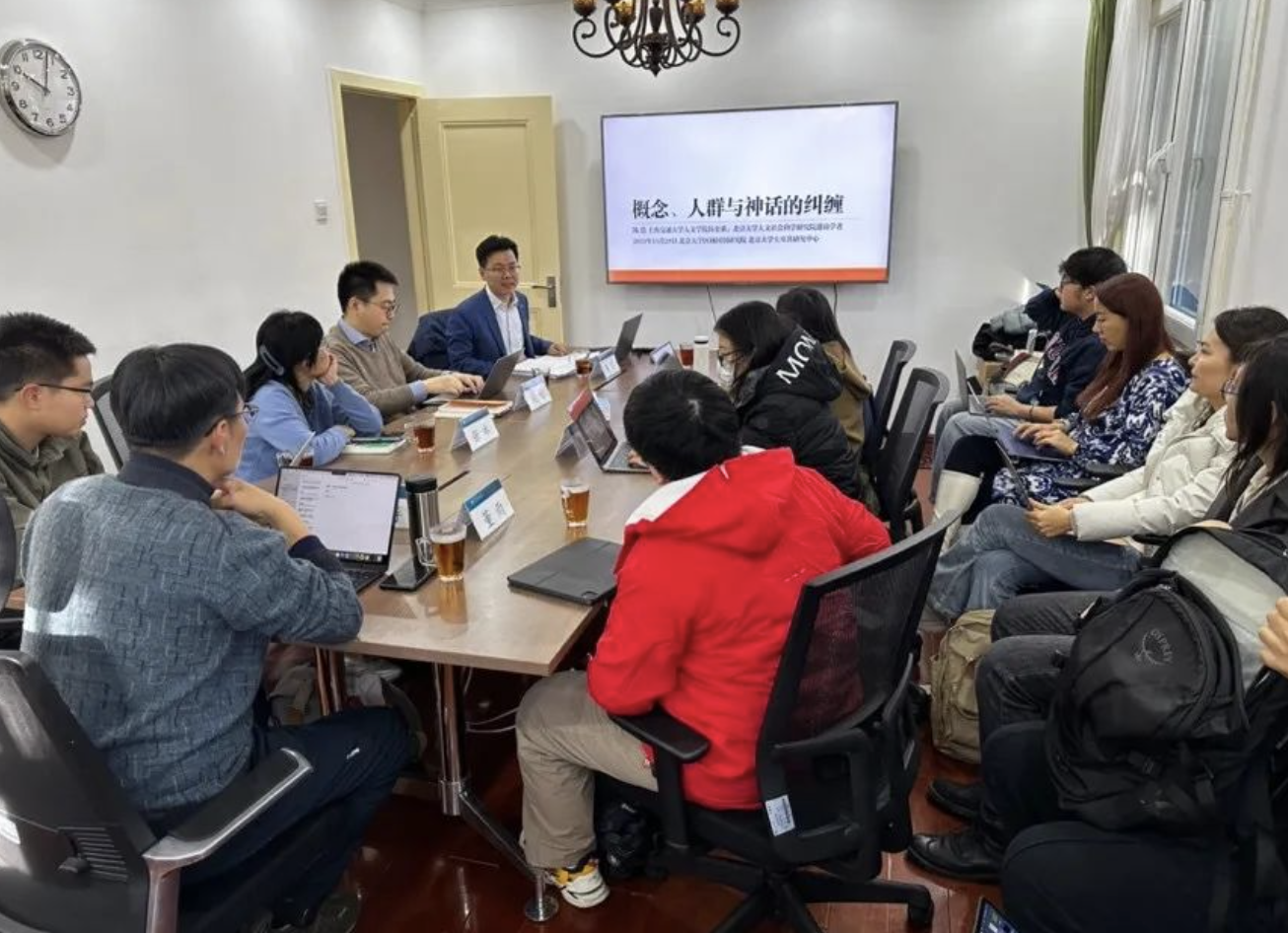The sixth lecture of the Youth Salon series of the Institute of Area Studies, Peking University (PKUIAS), “The Entanglement of Concepts, Crowds, and Myths: Taking Turk and Turkic-speaking Crowds as an Example” was held on November 29, 2023. The speaker was Chen Hao, an associate professor of the Department of History, Shanghai Jiaotong University. The lecture was moderated by Shi Yue, assistant professor of the School of Foreign Languages, PKU, with the participation of Prof. Zan Tao, deputy director of PKUIAS; Zhang Bing, director of the Foreign Languages Department of Peking University Press; Shen Yiming, lecturer of the Department of West Asian Studies of the School of Foreign Languages, PKU; Yang Meng, assistant professor of the Institute of World Literature, PKU; and Dong Yu, Post-Doctoral Fellow of the Department of History, PKU.
At the beginning of the lecture, Shi Yue reviewed Chen Hao’s previous lecture on the concept of the “Turk” in the documentary tradition and the significance of the construction of the Western Inner Asian discourse since the 19th century in shaping the concept of the Turk, and proposed that, at the methodological level, it is important to restore the context of the terminology in the study of the above issues, and to differentiate between the conceptual differences in different contexts.
The lecture is based on Chen Hao’s new work. First, Chen Hao, by means of the conceptual history works of German historian Reinhart Koselleck, introduced the historicist perspective from the theoretical perspective of conceptual history, which embodies the tradition of German conceptual history. In the analysis of concepts, Chen Hao took into account the American philosopher Arthur Lovejoy’s paradigm that emphasizes the mobility of concepts across national boundaries and B.F. Skinner’s contextualism that stresses the interaction between the meaning of concepts and their surroundings, and analyzes important concepts such as the “Turk” on this basis. As for the second keyword “global history” in the book, Chen Hao adopts the research approach of considering it as both object and method.
Chen Hao detailed a narrative analysis of Turkic origins; the contextual historical meaning of “Turk”; distinctions between “Turks” and “Tatars” in Western Europe; and “Turks” and “Turkmen” in Central Asia, alongside the identity complexities of Turkic-speaking populations in Western Asia. Chen Hao presented an academic exploration into the intertwined relationships between concepts, crowds, and myths throughout history, focusing on the transformation of the “Turk” concept, migrations of Turkic-speaking groups, and the creation of ancestral myths.
He concluded by describing three manifestations of agency in historical actors: the exportation of concepts based on unequal power relations, the strategic use of conceptual differences and historical resources to meet political expectations, and the unconscious acceptance of asymmetrical power-laden concepts.
Engaging with Chen Hao’s case study, teachers and students gave their insights and questions in the discussion session from their own disciplinary background and research interests. The discussion ranged from how to realize academic innovation in traditional research while developing China’s area studies, and the significance of the awareness of China’s subjectivity for the development of area studies, to the reconsideration of the origin, scope, use and derivation of the concept “Turk.” At the same time, there were discussions on how the chapter structure was formed during Chen Hao’s writing of the book, as well as deep reflections on the methodological experience of the research and the important connection between the shaping of the concepts and the traditional political aspirations on the abstract levels of conceptual history and academic history.



